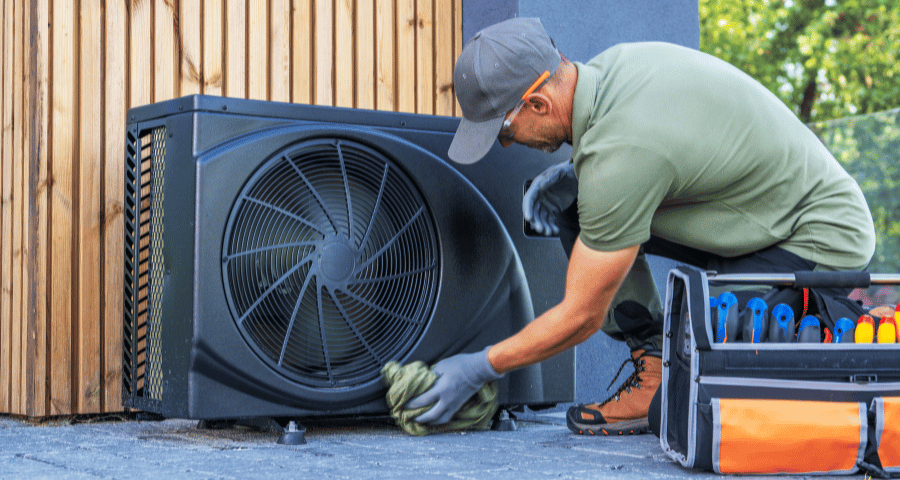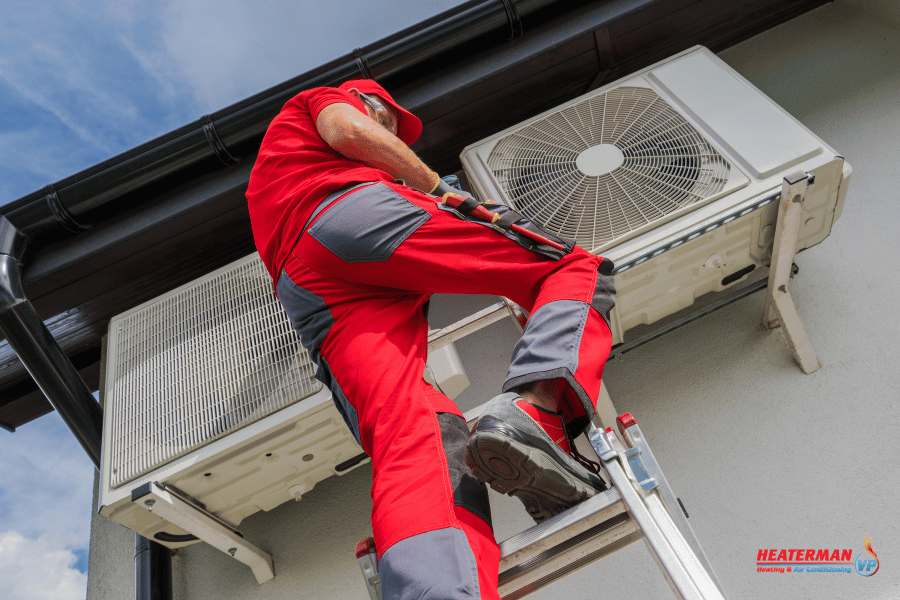
How to Prepare Your HVAC System for Seasonal Weather Changes
Living in Suffolk County means adapting to a wide range of seasonal weather conditions — from freezing winters to humid summers and everything in between. These constant shifts place pressure on HVAC systems that must work year-round to maintain comfort. While many homeowners rely on their systems without much thought, seasonal changes are exactly when proactive maintenance becomes essential.
Understanding the effects of each season on your HVAC system helps ensure efficient operation, fewer breakdowns, and a more comfortable living environment. This guide breaks down the key tasks and considerations for each season so you can keep your system running smoothly throughout the year.
The Role of Preventive HVAC Maintenance
HVAC systems are one of the most used mechanical systems in any home. They're also one of the most complex — blending electrical, mechanical, and environmental functions to heat, cool, ventilate, and regulate air quality.
Without regular seasonal care, HVAC systems can:
- Lose efficiency due to dirt buildup or worn parts
- Struggle to maintain even temperatures
- Develop moisture problems, mold, or poor airflow
- Experience premature wear or system failure
Preventive seasonal maintenance helps identify these problems early and provides homeowners with the opportunity to make adjustments before peak usage months begin.
Spring: Transitioning from Heating to Cooling
As temperatures begin to rise and heating demand drops, spring is the ideal time to prepare your system for air conditioning season. Winters in Suffolk County can be long, which often leaves HVAC components like filters, coils, and outdoor units in need of attention.
Spring HVAC Maintenance Tips:
- Clean or Replace Air Filters
A winter’s worth of dust and debris can clog filters. Replacing them in early spring improves indoor air quality and system airflow. - Clear the Area Around the Condenser Unit
Leaves, twigs, and winter debris can accumulate around your outdoor AC unit. Clear at least 2 feet of space around it for optimal air circulation. - Inspect Refrigerant Lines
Check for cracks or missing insulation on the refrigerant lines. Damaged insulation can reduce efficiency and lead to performance issues. - Test Your Thermostat in Cooling Mode
Switch your thermostat over to cooling to ensure it activates the AC and maintains the correct temperature. - Flush the Condensate Drain
A clogged drain line can cause water to back up into your system or home. Spring is a good time to flush it and check for any signs of blockage or mold.
Summer: Maintaining Peak Performance
Air conditioning systems work hardest during summer, making performance and energy efficiency especially important. Suffolk County summers can bring high humidity, which adds additional stress to your system’s workload.
Summer HVAC Maintenance Tips:
- Check the Airflow Inside the Home
Make sure vents are unblocked and air is circulating evenly in every room. Poor airflow could signal duct issues or filter problems. - Inspect Insulation Around Ducts
Heat and humidity can penetrate poorly insulated ducts, especially in attics and crawlspaces. Inspect and replace damaged insulation as needed. - Listen for Unusual Noises
Grinding, rattling, or buzzing noises could indicate loose parts or fan issues. It’s better to address small sounds early before they lead to larger problems. - Keep the Outdoor Unit Clean
In addition to clearing debris, gently rinse your outdoor unit’s fins with a hose (not a pressure washer) to remove dirt and pollen buildup. - Monitor Energy Use
Unexplained spikes in your utility bill may be a sign your system is working harder than it should. This often happens when coils are dirty or refrigerant is low.
Fall: Preparing for the Heating Season
As summer fades and temperatures begin to cool, it’s time to shift focus to your heating system. A smooth transition from cooling to heating ensures you're ready for the first cold front without interruption.
Fall HVAC Maintenance Tips:
- Replace the Filter Again
Dust and pollen from summer can build up quickly. A clean filter supports better airflow and heating efficiency. - Inspect the Heat Exchanger (if accessible)
A cracked heat exchanger can leak carbon monoxide. Look for signs of rust or corrosion, especially in older systems. - Test the Thermostat’s Heating Mode
Switch from cooling to heating on your thermostat. Make sure your system starts properly and accurately reaches the set temperature. - Inspect Registers and Grilles
Ensure all registers are open and unobstructed. Dust or vacuum them as needed to keep airflow consistent. - Check for Drafts and Air Leaks
Doors, windows, and poorly insulated areas can affect indoor temperature stability. Seal gaps before winter for better HVAC efficiency.
Winter: Ensuring Reliability in Cold Conditions
Winters in Suffolk County can bring freezing temperatures, snow, and strong winds — all of which demand consistent and reliable heating. Winter maintenance is about maximizing safety, performance, and comfort.
Winter HVAC Maintenance Tips:
- Keep Outdoor Vents and Exhaust Pipes Clear
Snow and ice can block flue pipes or vents, leading to system shutdowns or dangerous gas buildup. Check these areas after each storm. - Check the Pilot Light or Ignition System
Older systems may have a standing pilot light that needs monitoring. Newer systems use electric ignition, which should be tested for reliability. - Inspect Carbon Monoxide Detectors
With increased heating comes increased risk of CO buildup. Test all detectors monthly and replace batteries at least once per season. - Listen for Irregular Operation
If your furnace starts short cycling (turning on and off too quickly) or has a delay in ignition, it may need attention before full failure occurs. - Monitor Indoor Humidity
Cold air tends to be dry. Low humidity can cause discomfort and static electricity. Consider a whole-house humidifier or portable units if levels drop below 30%.
Adapting to Suffolk County’s Coastal Climate
In addition to seasonal changes, Suffolk County’s coastal geography brings unique challenges:
- Salt Air Corrosion: Homes closer to the shore may experience faster wear on outdoor metal components. Regular inspections are key.
- Flood Risk: Low-lying areas may be more susceptible to water damage during spring thaw or heavy storms, which can affect indoor systems in basements or crawlspaces.
- Humidity Swings: Coastal humidity varies greatly by season. Systems should be checked for condensation and moisture control capabilities year-round.
By factoring in these local conditions alongside seasonal tasks, homeowners can stay ahead of problems and maintain reliable comfort through all four seasons.
Conclusion
HVAC systems aren’t “set it and forget it” — they’re dynamic systems that respond to the environment around them. In Suffolk County, where weather conditions shift drastically between seasons, regular and seasonal maintenance is one of the smartest things homeowners can do to protect their comfort and investment.
Understanding what each season demands of your heating and cooling equipment helps you take better care of it — reducing breakdowns, increasing efficiency, and ensuring your home remains a comfortable retreat no matter what the weather brings.
Skipped seasonal maintenance and now your system’s acting up?
Our Emergency HVAC Services in Suffolk County are available 24/7 to handle sudden breakdowns caused by extreme weather shifts or neglected tune-ups.



